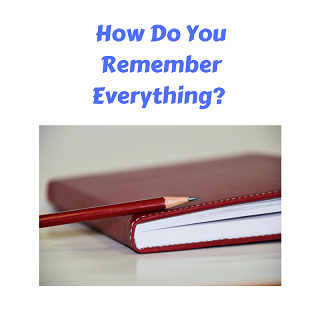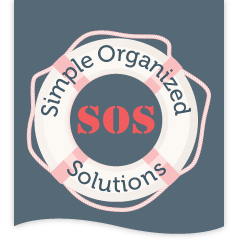 All of us have so much to remember these days, it’s a wonder we actually get anything done on time, or at all! Changing work schedules, doctor’s appointments, medication schedules, paying bills, kids sports, ‘me time’, passwords, the list goes on…
All of us have so much to remember these days, it’s a wonder we actually get anything done on time, or at all! Changing work schedules, doctor’s appointments, medication schedules, paying bills, kids sports, ‘me time’, passwords, the list goes on…
We suffer the consequences of not remembering something in some way. If we miss a payment, there could be a late fee. If we miss a dose of medication, our health could suffer. Forgetting login credentials can take more time to get things done online. Neglecting ‘me time’ can cause undue stress which can again lead to health issues. Actually, when we don’t remember any of the above, it causes stress, which is a big health issue.
Some of us are better than others at keeping track of everything that needs to be done. Organizing our things, and our time is a great way to help us with our memory. There are a lot of tricks to remember things, and if you do some research you may find something that works for you.
Since we are all different, we have different learning modalities. I don’t know the statistics for all the learning modalities, but I do know that there is a large population that are visual learners. For those that are visual learners, lists, or to-do lists work quite well. The act of writing things down, which is also the tactile learning modality, either with paper or digitally, can help us remember.
There are different thoughts on how to make to-do lists more effective. Some say to create a master list, then create a smaller list of the top three items you need to accomplish today. Others say to prioritize all the items on one list. Although, it seems that the general consensus is that scheduling items on a to-do list makes them more effective.
In order to schedule the items on a to-do list, calendaring is required in some way. A yearly paper or digital planner is the required resource to contain your schedule of to-do’s. There are also different thoughts on the most effective calendaring techniques. Some color code entries, or group similar tasks into a ‘chunk’ of time. What works for one, may not work for another.
My suggestion is to really think about your particular learning modality, what makes sense to you. Then acquire a calendar – paper planner, wall calendar, or if you’re digitally inclined, your phone has a nifty built in calendar.
Now that you have a calendar, start making entries for everything you need to remember. Enter all those important schedules, appointments, and to-do’s. You can play around with the entries in terms of time chunking or color coding, to see what works best for you. In the end, I bet you will remember all of the things that keep you organized in your busy life.
How do you remember everything?


